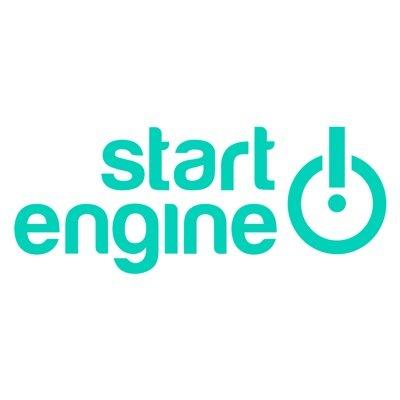Invest in individual commercial real estate properties or REITs
Invest in startups in exchange for equity or debt
Investments
$25,000
The minimum investment on RealtyMogul typically ranges from $25,000 to $35,000, depending on the specific investment offering.
Investments
$250
The minimum investment on StartEngine typically starts from $250, with the average being around $500.
Moderate Risk
3/5
Investing through RealtyMogul entails risks like market volatility, economic shifts, and property-specific issues. Investments are illiquid and there's potential for loss of capital.
High Risk
4/5
Investing on StartEngine carries risks including market volatility, liquidity challenges, regulatory changes, the high likelihood of company failure, dilution of shares, limited company information, and the absence of guaranteed returns.
Minimum Liquidity
1/5
Investments through RealtyMogul are illiquid, as they are private real estate transactions not traded on public exchanges, and therefore cannot be easily sold or traded. Investors should have a long-term commitment and not expect to resell quickly.
Minimum Liquidity
1/5
Liquidity on StartEngine Secondary varies due to its nature as a peer-to-peer trading platform with specific eligibility criteria and trading hours. Initially limited to companies that have raised on StartEngine, the platform's liquidity is influenced by the availability of securities and the matching of buy and sell orders within designated market hours.
Receive new reviews from Fintorial
High Return
15.0 %
Investors on RealtyMogul can expect an overall realized IRR of 20.8% and an overall target IRR of 15.0%. Cash-on-cash returns, IRR, and equity multiples are key metrics provided for each deal.
Not Predictable Return
N/P
Potential returns on investments are uncertain and vary. StartEngine's role ends after a company's capital raising concludes, leaving it without control or insight into post-offering investment activities.
Long-term Investment
3-10 years
Investments on RealtyMogul generally have a hold period ranging from 3 to 10 years, depending on the individual property's business plan and associated financing.
Long-term Investment
5+ years
Investments through StartEngine typically have a long-term horizon, often requiring several years to potentially yield returns due to the early-stage nature of the companies.
Who can invest
United States
RealtyMogul allows both accredited and non-accredited investors to use its platform. However, only accredited investors can participate in private placement offerings, while both categories of investors may invest in RealtyMogul's managed REITs, subject to certain legal limitations.
Who can invest
International
StartEngine allows anyone over 18 to invest. However, due to regulatory concerns, StartEngine does not currently accept investments from residents of the UK or Canada.
Moderate Volatility
3/5
Commercial real estate assets on RealtyMogul can be volatile, with values affected by economic shifts, interest rates, and market trends. This can lead to fluctuations in investment value and potential financial losses.
Moderate Volatility
3/5
Assets on StartEngine, mainly shares in startups and early-stage companies, exhibit high volatility due to uncertain revenues, evolving business models, and market sensitivity.
Regulation and audits
SEC Regulated
RealtyMogul is regulated by the SEC and must adhere to strict disclosure and filing requirements. The platform's offerings are subject to regular audits to ensure compliance with financial reporting and regulatory standards.
Regulation and audits
SEC Regulated
StartEngine operates under strict regulatory oversight by the SEC and FINRA, ensuring adherence to investor protection and market integrity rules.
Insurance
Yes
RealtyMogul's properties are insured against physical damage and loss, but insurance might not cover all risks, such as market volatility or economic downturns. Insurance is a risk mitigation tool, not a guarantee against all potential losses.
Insurance
Yes
StartEngine's memberships with FINRA and SIPC signify its commitment to investor protection, with SIPC offering insurance against the loss of cash and securities if a broker-dealer goes bankrupt. However, it doesn't cover market loss.
Payouts
Dividends
Investors may receive quarterly distributions, which are not guaranteed in timing or amount and depend on the performance of the investment and terms set by the managing real estate company.
Payouts
No Recurring Payouts
Dividends on StartEngine depend on the individual company's policy and investment terms, with startups often reinvesting profits to fuel growth rather than distributing dividends.
Withdrawals
Investors on RealtyMogul can expect to receive their money back either through property sales or distributions during the investment's hold period, as outlined in the offering documents. The investments are illiquid, so exact timing of returns is not guaranteed.
Withdrawals
Investors can withdraw available funds from their StartEngine Investment Account after a 10-day waiting period from the initial transfer, subject to providing additional information for security if needed.
Extra Fees
Yes
Investors indirectly pay fees for each investment, which vary by the offering and cover administrative, legal, and management costs. Fee details are disclosed for each opportunity on the platform.
Extra Fees
Yes
Investors may encounter a 3.5% processing fee on investments, depending on the company's choice. Wire transfers could have additional bank fees, while ACH and credit card investments don't have extra fees beyond the 3.5% if applicable. Trading on StartEngine Secondary is free for buying, but selling shares includes a 5% transaction fee.
Taxes
Tax Form
RealtyMogul issues Schedule K-1 forms for individual deals and Form 1099s for REIT investments, made accessible via the investor's dashboard. Dividends from REITs historically have not been qualified for preferential tax rates.
Taxes
Annual Statement
Investors must procure the necessary tax documents directly from the entities in which they have invested, since StartEngine does not distribute tax forms.

